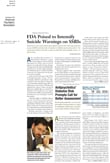Moonlighting in medicine is defined as any professional activity done outside a resident’s training program. Engaging in moonlighting has long been a tradition for residents to earn money beyond the modest salary provided by residency programs, yet residents are now hesitant about moonlighting and shy away from it for various reasons.
I began to moonlight only at the beginning of my fourth year of residency. I was a late starter not because I wasn’t given permission earlier, but because I feared moonlighting might conflict with my regular clinical work and take time away from my family on weekends. I also had concerns about working unsupervised. However, the anticipation of being able to pay off my long-term loans faster persuaded me to give moonlighting a try.
The first time I worked over a weekend, I remember being enthusiastic and upbeat. Not knowing what to expect, I packed some books, including my favorites: The Washington Manual of Medical Therapeutics and Harrison’s Principles of Internal Medicine. I had a colleague’s phone number handy in case I needed a second opinion and advice. The clinical director of the hospital gave me a tour of the 30-bed inpatient state psychiatric facility and the keys to my office. My duties included doing morning rounds and evaluating new admissions.
I began morning rounds with no attending and medical students with me. For a moment, the task seemed daunting, and I felt the pressure of being alone. The presenting clinical problems were diverse, ranging from greenish eye discharge to constipation, persistently elevated temperature, and abdominal pain. In some cases I would have called for a medical consult if I were working as a resident, but this was a different story. While the nurses were cooperative and helpful, I had no one on whom to depend. I began to wonder why I had accepted this job at all.
Nonetheless, I persevered and managed to keep a cool, calm attitude. Recalling my cognitive-behavioral therapy techniques, I repeated to myself, “You have handled this in the past.” As rounds progressed, my diagnostic skills and treatment decisions started flowing smoothly, and my confidence level began to rise.
Moonlighting can be divided into “internal moonlighting,” which is moonlighting that occurs within the residency program and/or the sponsoring institution or the nonhospital sponsor’s primary clinical sites, and “external moonlighting,” which is moonlighting that occurs outside the residency program.
External moonlighting requires residents to obtain their own liability insurance. Internal moonlighting hours are counted toward the 80-hour weekly limit on duty hours as recommended in guidelines by the Accreditation Council on Graduate Medical Education. Moreover, residents usually cannot moonlight internally on their “day off.”
There are several treatment settings suitable for moonlighting: emergency rooms, state psychiatric hospitals, and community mental health centers; another option is to conduct physicals for insurance agencies. Residents may be asked to do physical and mental evaluations if they work in long-term psychiatric facilities.
To begin moonlighting, residents should make a request in writing to the residency program director. The program director in most cases approves moonlighting requests for residents in good standing. Some programs, however, have restrictions depending on your training year and performance on PRITE.
Some tips:
• Obtain your state physician license and state controlled-substance registration number as a first step toward moonlighting.
• Be cautious and ask for a consult if you are unsure about how to handle medical problems. As a colleague of mine said, “It’s nice to have the cash, but you don’t want to start out your career with a lawsuit.”
• Document clearly and be aware of seclusion and restraint rules.
• Always carry books for reference, even if you feel confident.
• Work over long weekends to make a substantial amount of cash at one time.
• Residents on a J-1 visa are prohibited from moonlighting, and violators may be at risk for deportation.
• Make sure moonlighting activities do not interfere with your residency training program’s activities and requirements.
There are always some cons for every pro. By working extra hours, residents forfeit time to be with their families and engage in leisure activities, often endure long drives, and incur additional liability risks.
Still, I believe that independence associated with moonlighting is an invaluable way for residents to test the waters in the real world. It is also an educationally stimulating environment in which to hone one’s general medical skills. It ultimately promotes professional growth, and I feel that all residency programs should encourage moonlighting. ▪

